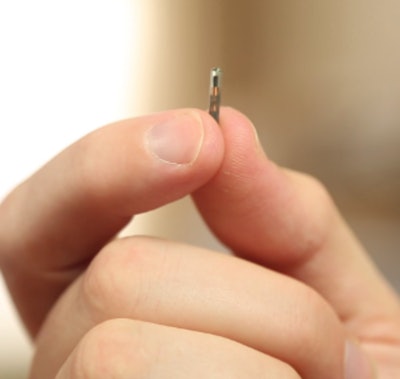
Vending technology company Three Square Market reportedly plans to become the first company in the U.S. to offer implanted microchip technology to its employees.
Wisconsin Public Radio reports that the Hudson-based company will host a "chip party" this week for employees that opt for the microchip, which would allow them to open doors, log into computers or buy break room snacks with a wave of their hand.
The chip, developed by Sweden's BioHax, uses radio-frequency identification technology. Company officials argued that the microchip equates to carrying a smartphone or credit card, but conceded that it would also likely cause unease among employees and the general public alike.
"There are some people that are apprehensive and have questions and there’s others that just say, "that’s not for me,'" president and CEO Patrick McMullan told WPR. "We stressed right out of the gate that, 'Listen, we don’t want anybody to feel that they have to do this.'"
Three Square Market reportedly expects that more than 50 of its 92 employees will elect to receive the implant. The technology is already in use in some European workplaces, and the company hopes that it will help grow its existing self-checkout systems.
 (Image credit: 32M)
(Image credit: 32M)Eventually, proponents believe it will be used for everything from public transit to passport information.
Although the BioHax chip does not include GPS — which prevents tracking employees' locations — critics highlighted the obvious privacy implications of implanted microchips.
“This is one of those technologies that sound like it might create some kind of efficiency, but to me the downside is just too great,” University of Wisconsin-Milwaukee professor Michael Zimmer told the Associated Press.






















